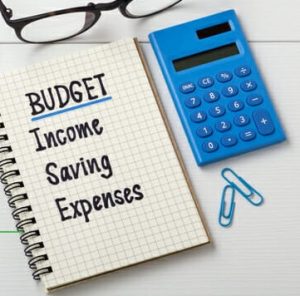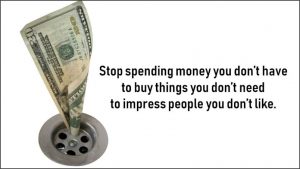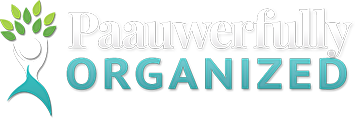Just like many of us have our own personal self-care routines that we follow to keep us healthy, having structured, attainable financial goals for your earnings can be just as important. You work hard for your money the same way you work hard to stay in shape and eat a balanced diet, so why not put the same emphasis on creating a self-care routine for your finances? Think of it like building muscles to support and strengthen your assets so you can prosper for years to come.
Everyone has their own methods of saving, investing and budgeting their money. And as difficult as this may be, having a family can make it even more challenging and stressful to make ends meet, much less grow your savings. Here are some great tips for those looking to start a self-care routine for their money to help it thrive.
Create a budget & stick to it!
 If you don’t already have a monthly budget that you follow to keep your finances on track, this is a great first step. Start by calculating the sum of your monthly fixed expenses such as rent or mortgage payment, utilities, car payment, insurance, and any other costs that you may pay regularly. Subtract this amount from your net pay, as this is the income you receive after taxes. The remainder of this money should be split accordingly among your monthly variable expenses (groceries, entertainment, etc.), savings, donations, 401k/Roth IRA, and an emergency fund.
If you don’t already have a monthly budget that you follow to keep your finances on track, this is a great first step. Start by calculating the sum of your monthly fixed expenses such as rent or mortgage payment, utilities, car payment, insurance, and any other costs that you may pay regularly. Subtract this amount from your net pay, as this is the income you receive after taxes. The remainder of this money should be split accordingly among your monthly variable expenses (groceries, entertainment, etc.), savings, donations, 401k/Roth IRA, and an emergency fund.
A good rule-of-thumb to follow is the 50/30/20 rule. To summarize, it suggests that 50% of your income be used for necessities, 30% for discretionary items, and the other 20% gets put into savings or invested for long-term growth. For some, donations to charity are also important, so include that in your monthly budget if it’s important to you. Use a spreadsheet to make the budgeting process easier, and don’t be afraid to make adjustments as needed. Tracking your spending can go a long way in helping you get on track!
Mint is a great online budgeting tool that can automatically download transactions from various sources. It sets up a secure connection to your checking account, credit cards, and other spending sources. Then it pulls in your transactions automatically so you can categorize and tag them according to your budget.
Budget Tracker is a free budget tool that helps you schedule out your income and expenses. Its goal is to help you become and stay debt-free. It includes a number of interesting calculators, which can help you crunch numbers and set financial goals. Budget Tracker can also help your kids learn to budget. Each family member can have their own section within your larger family budget to manage their accounts and budgets. Each category in the kids’ budget has pictures so they can connect with the categories more easily.
Live within your means.
As much as you may want that new designer watch or an update to your wardrobe, those expenses add up quickly and can take away from your savings potential.  Don’t fall into the trap of carelessly spending money you have now when it could grow into more down the road if saved and invested properly.
Don’t fall into the trap of carelessly spending money you have now when it could grow into more down the road if saved and invested properly.
That doesn’t mean you can’t occasionally treat yourself or your family, but knowing how much you spend and how much disposable income you have each month is a crucially important factor that many individuals overlook. Don’t swipe that credit or debit card too hastily, and keep track of exactly how much has been withdrawn from your bank account at the end of each day.
Use credit carefully.
Although having a credit card may seem like the simpler and easier way to pay for your expenses, there are several downfalls to relying on credit as your primary source of payment. If you fail to accurately track how much debt you’ve  accrued from swiping your card, it may not be possible to pay the full balance due at the end of the month. Interest will continually be added to outstanding debts and you risk hurting your credit score if you aren’t careful. Debit cards are much more reliable, as they only draw from existing funds and allow you to pay upfront without accruing any interest charges. Use this method whenever possible to keep from overspending.
accrued from swiping your card, it may not be possible to pay the full balance due at the end of the month. Interest will continually be added to outstanding debts and you risk hurting your credit score if you aren’t careful. Debit cards are much more reliable, as they only draw from existing funds and allow you to pay upfront without accruing any interest charges. Use this method whenever possible to keep from overspending.
Using credit cards to gain mileage points or credit toward future purchases will only save you money if you can pay the credit card balance when your statement arrives each month. Otherwise, the interest payments may outweigh the benefits of accruing such points.
Open an investment account.
If your employer doesn’t offer a 401k or Roth IRA option, or you just want to invest additional income in the market, open an investment account that you can add to when possible to further grow your assets. Establishments such as Charles Schwab, Vanguard and more have expert investors that can help buy and sell investments in a personal portfolio that meets your financial goals.
your assets. Establishments such as Charles Schwab, Vanguard and more have expert investors that can help buy and sell investments in a personal portfolio that meets your financial goals.
If you have a family or plan to have a family in the future, investing is important. Even if you are averse to taking major risks, putting money into government bonds and low volatility stocks will earn you a steady profit over an extended period. Follow the market, check on your portfolio, and invest as much as you can each month.
Find new ways to save.
Finding small ways to save can not only be beneficial to your overall wealth but can also be exciting! There are so many things you can do to stretch your dollars every month. Using a family plan for your mobile phone service, switching to a bank with no fees or additional charges, or even simply utilizing apps that provide weekly coupons can put hundreds of dollars back into your pocket. You’ll definitely notice a big difference over time if you actively look for methods of cutting down on your expenses and putting as much as you can into your savings every month. Make your finances a priority because the sooner you nail down a structured routine, the more earning potential you will create for you and your family.
a bank with no fees or additional charges, or even simply utilizing apps that provide weekly coupons can put hundreds of dollars back into your pocket. You’ll definitely notice a big difference over time if you actively look for methods of cutting down on your expenses and putting as much as you can into your savings every month. Make your finances a priority because the sooner you nail down a structured routine, the more earning potential you will create for you and your family.
Just do it!
 Even if you don’t have much money to work with, start small and build from there. Remember that the combined effect of compound interest and many years of savings can add up to a sizeable retirement account that you’ll appreciate having when you are no longer working.
Even if you don’t have much money to work with, start small and build from there. Remember that the combined effect of compound interest and many years of savings can add up to a sizeable retirement account that you’ll appreciate having when you are no longer working.
Below are some questions to help you get clear about what may need some attention with your finances:
- Do my finances allow me to be at choice in my life, or are my decisions controlled by money?
- Will I be able to retire when I want and choose to?
- Do I have any credit card debt? If so, do I have a plan for eliminating it?
- Do I work within a budget? Am I a good manager of my finances?
- Do I know the “bottom line” of my finances at any given time?
- Do I have a good credit score?
- Does money flow freely into my life? Do I have a high or low money blueprint?
- Have I leveraged my money through smart investments?
- Am I working with competent and trusted financial advisors, CPAs, and other financial professionals I need to help me with important financial management, decisions, and actions I need to take?
- Do I have adequate coverage for medical, auto, home, life, and disability insurance?
Once you’ve answered the questions above, you may have greater clarity about what needs some attention. Next, identify some specific actions you will take, and by when.
Here’s an example of what that looks like:
Actions to take:
- Assess my financial health.
- Improve my Money Blueprint.
- Identify ways to save money.
By when:
- Identify all assets by (date).
- Identify all debt by (date).
- Find out my existing credit score by (date).
- Create a realistic budget by (date).
- Read 101 Ways to Save Money on (date) and select 3-5 ideas to implement.
- Read What Does Your Money Blueprint Say About You? by (date) and identify what needs to shift in my views about money to foster a healthier relationship with money in my life.
I encourage you to choose ONE thing you will begin TODAY to improve your financial life. Commit to spending 15 minutes to just do it by taking immediate action.
If you’d like a fresh perspective– someone to help you design the balanced life you want by managing your finances to align with your vision, priorities, and actions—let’s schedule a no-cost, no-pressure Discovery Call today.
Additional Resources:
- Blog: Balance Your Life: The 9 Environments of You: Environment #7 – Financial
- Blog: 101 Ways to Save Money
- Blog: Are You Prepared? The time is NOW to get your affairs in order.
- Guide: What Does Your Money Blueprint Say About You?

Life Architect – Creating Blueprints for Purposeful & Productive Lives
Kathy@OrgCoach.net www.OrgCoach.net Follow me on Facebook





